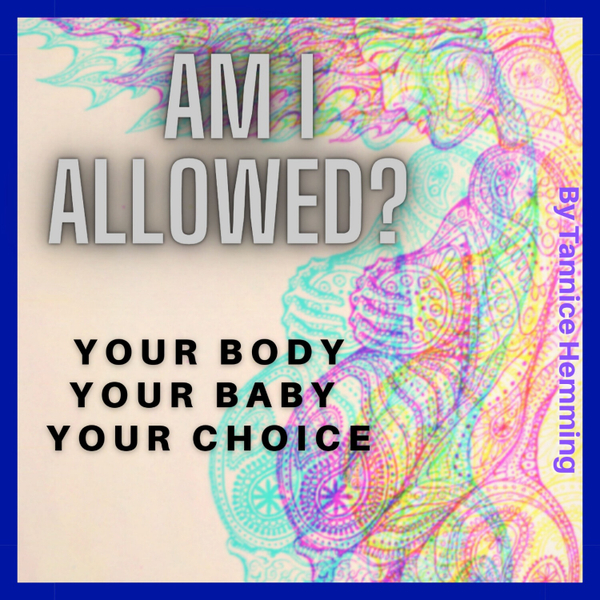Am I Allowed
With the overwhelming weight of information from differing sources around pregnancy, labour and interventions, how can you ensure the decisions you make during your maternity journey are right? Is your sister’s experience representative of your future labour? What about your friend’s? How can you weigh up the evidence versus your own, personal circumstances?
Wading through very dry and complicated statistics is tough. So is solely listening to recommendations and opinions from healthcare professionals (HCPs), which sometimes conflict with each other. Then there’s the amount of scary stories that abound on social media, too. Loud voices online which are polarised between “ignore health professionals and aim for a completely natural birth at all costs” versus “do exactly what your doctors tell you, you’re putting your baby at risk”.
Why is informed consent so important?
With an estimated 1 in 3 birthing women and people experiencing birth trauma; and postnatal depression affecting 10-15% of everyone (1) who gives birth, informed consent and good decision making is absolutely key.
"[Women and birthing people] who feel lack of control during birth or who have poor care and support are more at risk of developing PTSD” Post-Traumatic Stress Disorder following Childbirth - (Ford and Ayers) (2)
Research (3) suggests that lack of information, feeling uninvolved in decision-making, poor communication with healthcare professionals and lack of choice and consent is behind a lot of birth trauma. Another study identified that “care provider actions and interactions can influence [birthing women and people’s] experience of trauma during birth” (4).
To try and counteract these difficulties, Tannice’s podcast will lead you through a journey of discovery to learn more about truly informed consent, how to advocate for yourself, ask for evidence and find the best information. Then she’ll explain exactly how to weigh up these different choices and reach a decision that feels right and is evidence-based... even if you later change your mind, once again!
- https://www.sth.nhs.uk/clientfiles/File/PostNatalDepression%5B1%5D.pdf
- https://openaccess.city.ac.uk/id/eprint/5036/5/Chapter_final_version_(1).pdf
- https://www.tandfonline.com/doi/full/10.1080/02646838.2018.1504285
- https://bmcpregnancychildbirth.biomedcentral.com/articles/10.1186/s12884-016-1197-0
Episodes
1 Is Informed Choice an Illusion?
- What is an informed choice and why is it important?
- Why some people feel informed choice is an illusion
- What are the influences on personalised decision-making in maternity?
- The role of social media in your maternity choices
- The importance of attitudes, philosophy, information presentation and translation
- Maternity interventions and language use
2 Evidence Gathering Part 1
- How to ask for evidence from your clinician/medical team and challenging authority
- Where to find your evidence
- Traps to be aware of
3 Evidence Gathering Part 2 (Evaluation)
Fact finding - a mini, crash course in the scientific method.
4 Decision making Part 1
This episode will begin discussing the difficulties and pitfalls of making your evidence-based decisions. You got tons of information, so how can you weigh it up?
5 Decision making part 2
The second part of the decision making two-parter will talk more about the decision-making process and how it can be incredibly difficult, even with guides and tools to make those decisions. Tannice will talk more about:
6 Conclusion
This final episode will provide a recap on the importance of informed choice in maternity and return to Episode One’s central question: Is Informed Choice an Illusion?
Tannice will also discuss the importance of risk benefit analysis and talk about birth trauma in relation to decision making.
She will also cover forgiveness, debriefing on past choices and compassion based therapy for those who need it.
